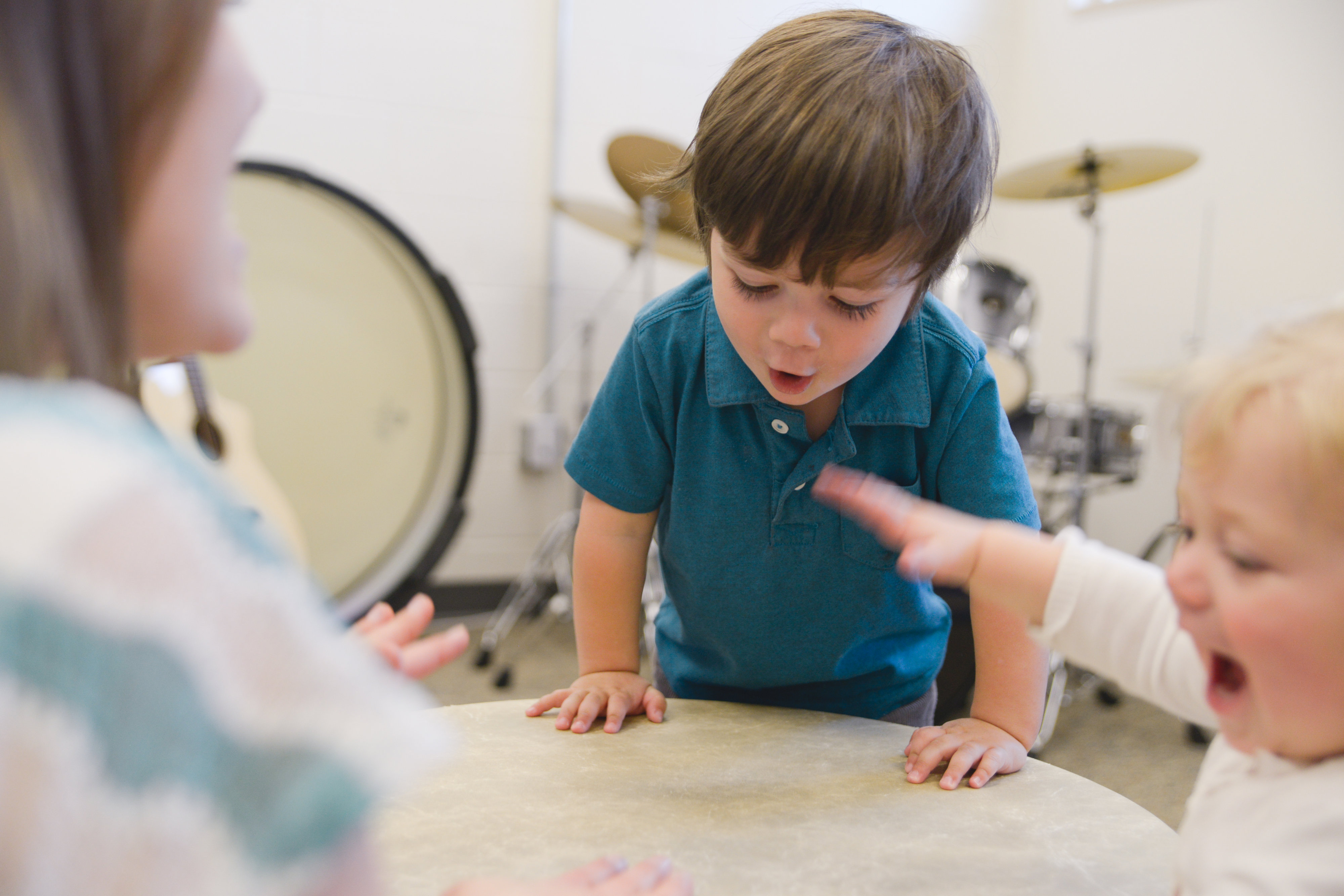A Developmental “Boost”: Rationale for Music Therapy in Early Intervention
Children respond to music, plain and simple. What parents and providers may not know is that music therapy can play a significant role in early intervention to help a child reach his or her potential.
Whether you have a child who is typically developing or has special needs, music plays a big role in development. Children respond to music naturally, without having to learn what to do or how to do it. What does this reaction look like?
In the words of parents:
“My kids start dancing, especially my 9 month old, when they hear music they like. My almost 4 year old is more into singing (don’t know where he gets that), and loves to make up his own songs. But my very favorite use of music is to help calm temper tantrums. I tell my toddler to listen to ev music to help him calm down, and it works!”
“When my 2 year old hears her favorite songs, she can’t help but dance, twirl around like a princess, and belt out the lyrics she remembers. My 4 year old asks to listen to his favorite songs several times a day, and will remember lyrics and phrases that I hadn’t even picked up yet. And my 7 month old gets a big ol’ two tooth grin whenever I sing his favorite songs and hold him up to dance with me. His whole body gets engaged and he focuses his attention on my while I sing.”
“My almost 3 year old loves to sing when any song she knows comes on. The other day in church she was BELTING out “I am a child of God” in sacrament meeting. She gets happy to hear songs she recognizes. I’ve also listened to primary church songs in the car to calm and assist with napping in the car if it’s a busy day since she was about 1. We still listen to it mostly in the car. She knows tons of primary songs already. Looking to get her in some sort of singing lessons- cause I have a feeling music will be a big part of her life.”
My 5 year old stops whatever she is doing and just listens. She also loves to make up her own or even narrate what she’s doing in a sing song voice. My 2 year old likes to sing songs for bedtime. And when they’re upset sometimes we sing primary songs together to calm down.
Children Are Naturally Drawn to Music
It is no coincidence that all children are drawn to music—we are hard wired for these responses. So imagine how powerful it would be to use music intentionally to promote development!
Many parents do this naturally by singing with their children, exposing their children to a variety or music, or playing simple rhythmic games such as “pat-a-cake”. Some parents take a step further and bring their children to early childhood music classes such as Musik Garten, Kinder Music, or Music Together.
But for those children with special needs, additional support is often needed. Working with someone who is trained in music and child development can make a big difference in identifying exactly how to use music effectively.
Enter Music Therapy.
Music Therapy Gives Children a Developmental “Boost”
Music lights up the entire brain, and as a result it can help identify strengths and build on them to help special needs children.
For example, if a child is delayed in speech and language but is willing and able to vocalize to music, a music therapist can use that to the child’s advantage and use singing to develop language areas in the brain. Or perhaps the music therapist could use the child’s love for music to motivate him or her to make verbal requests for favorite songs or instruments.
Whatever the case, music therapy gives the child a developmental “boost”, so to speak.
When a music therapist comes into zero to three settings with the training to use music to promote development in specific areas, the child will make significant progress.
Some children who have been “stuck” for months on certain areas may begin to take necessary strides once they begin working with the music therapist. This growth is a key element of early intervention, and music therapy can (and should) be a key factor.
So why use music in early intervention? Because it is one of the most natural and effective ways promote development.
Music makes sense to children. It is part of who they are. And it helps them to grow and reach their unique and individual potential.
This is part 1 of a 4-part series on music therapy in Early Intervention programs. All related posts include:
#1 Rationale for Music Therapy in Early Intervention
#2 Music Therapy IS a Related Service in Early Intervention
#3 Two Powerful Ways to Utilize Music Therapy in Early Intervention
#4 Teaching Parents How to Use Music at Home
By the way, we offer a Complimentary Trial Session.
Early Intervention programs can request a free trial session for either group or individual music therapy. The purpose is to see music therapy in action and get a sense for whether it is a right fit for your early intervention program. Request your free trial session today and start seeing results!
Schedule My Complimentary Session!
And if you’re not sure whether music therapy is the right path for you, take our FREE QUIZ to find out!
TAKE THE QUIZ: WILL MUSIC THERAPY BENEFIT MY CHILD?


[…] #1 Rationale for Music Therapy in Early Intervention […]
[…] A Developmental “Boost”: Rationale for Music Therapy in Early Intervention […]